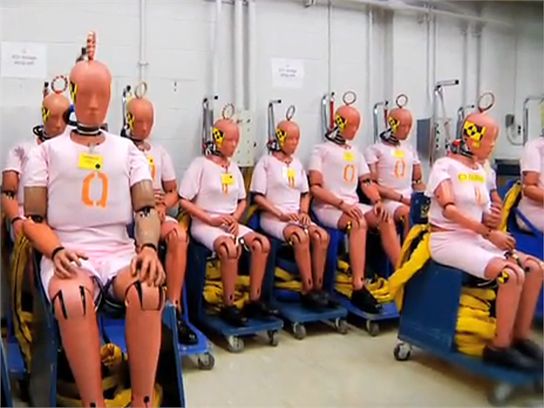There’s something about the hive mind that’s fascinating, the way large swaths of people can come to an often tacit consensus of things, the way we swarm to what we believe is the light. In the Information Age, we think of how Google and Wikipedia depend on the wisdom of the crowds to assemble unparalleled knowledge, but stupidity, too, can be the product of many. At Edge, MIT’s Professor Thomas Malone considers the power of collective thinking. An excerpt:
“Pretty much everything I’m doing now falls under the broad umbrella that I’d call collective intelligence. What does collective intelligence mean? It’s important to realize that intelligence is not just something that happens inside individual brains. It also arises with groups of individuals. In fact, I’d define collective intelligence as groups of individuals acting collectively in ways that seem intelligent. By that definition, of course, collective intelligence has been around for a very long time. Families, companies, countries, and armies: those are all examples of groups of people working together in ways that at least sometimes seem intelligent.
It’s also possible for groups of people to work together in ways that seem pretty stupid, and I think collective stupidity is just as possible as collective intelligence. Part of what I want to understand and part of what the people I’m working with want to understand is what are the conditions that lead to collective intelligence rather than collective stupidity. But in whatever form, either intelligence or stupidity, this collective behavior has existed for a long time.
What’s new, though, is a new kind of collective intelligence enabled by the Internet. Think of Google, for instance, where millions of people all over the world create web pages, and link those web pages to each other. Then all that knowledge is harvested by the Google technology so that when you type a question in the Google search bar the answers you get often seem amazingly intelligent, at least by some definition of the word ‘intelligence.’
Or think of Wikipedia, where thousands of people all over the world have collectively created a very large and amazingly high quality intellectual product with almost no centralized control. And by the way, without even being paid. I think these examples of things like Google and Wikipedia are not the end of the story. I think they’re just barely the beginning of the story. We’re likely to see lots more examples of Internet-enabled collective intelligence—and other kinds of collective intelligence as well—over the coming decades.”
Tags: Thomas Malone

